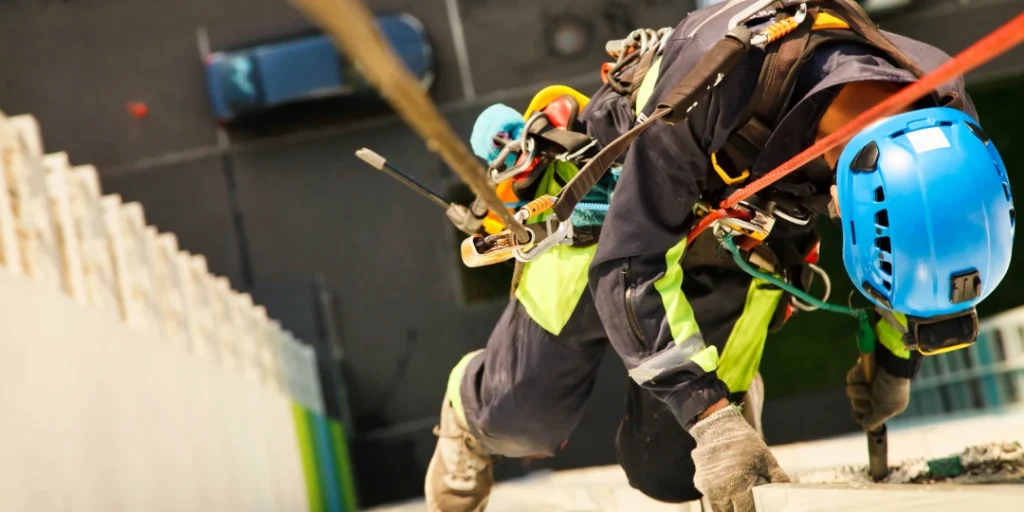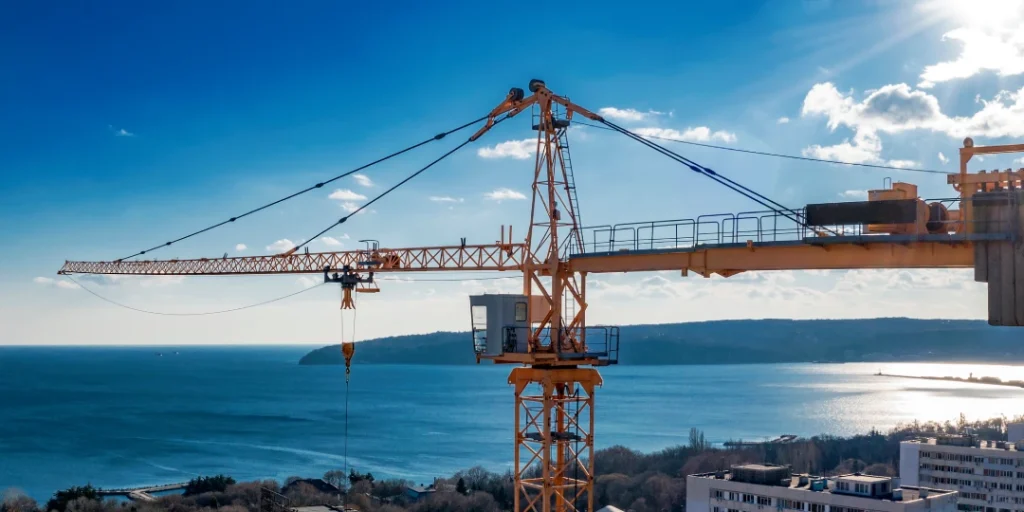Introduction: Elevating Safety Standards in Nashville
Aerial lifts have become indispensable across Nashville’s construction, utility, and facilities sectors. These machines allow workers to access hard-to-reach areas quickly and efficiently, cutting down on manual labor and increasing productivity. But with elevation comes elevated risk. Falls from heights, mechanical malfunctions, and unstable positioning can lead to serious injuries or fatalities. This is why aerial lift training at Fortier Loss Control is more than just an educational tool—it’s a safeguard against the hazards that threaten worksites every day.
In a fast-growing city like Nashville, where development is constant and timelines are tight, safety can’t be left to chance. Many contractors and site managers underestimate the complexity of lift operation, assuming general experience is enough. It isn’t. Each lift type—boom, scissor, or vertical mast—has its own operational protocols and failure points. Aerial lift training at Fortier Loss Control gives workers the technical knowledge to handle each type confidently, as well as the awareness to anticipate and avoid dangerous conditions. This kind of focused training reduces preventable mistakes and boosts accountability on the ground.
Beyond individual safety, there’s a broader impact. Proper aerial lift training at Fortier Loss Control contributes to a culture of responsibility across Nashville job sites. When operators are trained to identify risks, perform pre-use inspections, and communicate effectively with spotters and ground crews, the entire team functions more cohesively. That leads to fewer work stoppages, improved compliance metrics, and stronger relationships with clients and regulators. Safety isn’t just about avoiding harm—it’s a standard that reflects a company’s values. And Fortier ensures those values are understood and applied.
Compliance with OSHA and Tennessee State Regulations
Federal and state laws are crystal clear: no one should operate an aerial lift without proper training and evaluation. OSHA standards (specifically 29 CFR 1926.453) require that employers provide documented instruction to any worker using this equipment. Tennessee’s Department of Labor and Workforce Development enforces these rules rigorously, conducting site audits and issuing citations for any violations. Aerial lift training at Fortier Loss Control is structured to meet these legal thresholds directly, giving companies the protection they need from fines, stop-work orders, or worse.
Noncompliance isn’t just a bureaucratic headache—it’s a financial threat. OSHA penalties can exceed $16,000 per violation, and if an untrained operator causes an incident, liability skyrockets. Insurance premiums may increase, contracts can be revoked, and worker compensation claims can mount. Aerial lift training at Fortier Loss Control arms businesses with documented proof that they’ve taken the necessary steps to meet all regulatory demands. This documentation includes certification cards, training records, and detailed assessments that hold up under legal scrutiny.
Moreover, inspectors aren’t just checking boxes—they’re watching for performance. If a lift operator is seen handling equipment improperly, regardless of their certification status, retraining can be mandated on the spot. Fortier goes beyond the minimum by offering practical, scenario-based instruction that prepares operators for real-world site challenges. This means that aerial lift training at Fortier Loss Control doesn’t just help you meet regulations—it helps you exceed them, giving your team the confidence to operate in full compliance under any conditions.
Minimizing Workplace Accidents and Liability
Accidents involving aerial lifts are among the most devastating—and most preventable—on job sites. Tip-overs, falls, and entanglements with power lines account for a significant share of construction-related injuries and fatalities. These incidents often stem from operator error, poor judgment, or inadequate hazard awareness. Aerial lift training at Fortier Loss Control is designed to eliminate those variables. Workers are taught to anticipate risk, identify mechanical red flags, and avoid common pitfalls through a mix of hands-on practice and technical instruction.
One of the key benefits of Fortier’s program is its focus on real-world scenarios. Rather than delivering generic safety briefings, instructors simulate site-specific risks that workers are likely to encounter in Nashville’s varied work environments. Whether it’s dealing with uneven terrain in residential construction zones or navigating congested commercial workspaces, aerial lift training at Fortier Loss Control emphasizes decision-making in context. This equips operators to act quickly and safely when conditions shift, which is when most accidents tend to occur.
Beyond the physical harm to workers, job site incidents carry steep legal and financial consequences. Companies may face personal injury lawsuits, OSHA investigations, and reputational damage. Aerial lift training at Fortier Loss Control helps mitigate these risks by embedding a culture of caution and preparedness. Trained operators are less likely to take shortcuts, more likely to follow lockout/tagout procedures, and better equipped to spot issues before they escalate. Reducing even a single incident can save a company hundreds of thousands in direct and indirect costs—making training not only a safety measure, but a financial imperative.
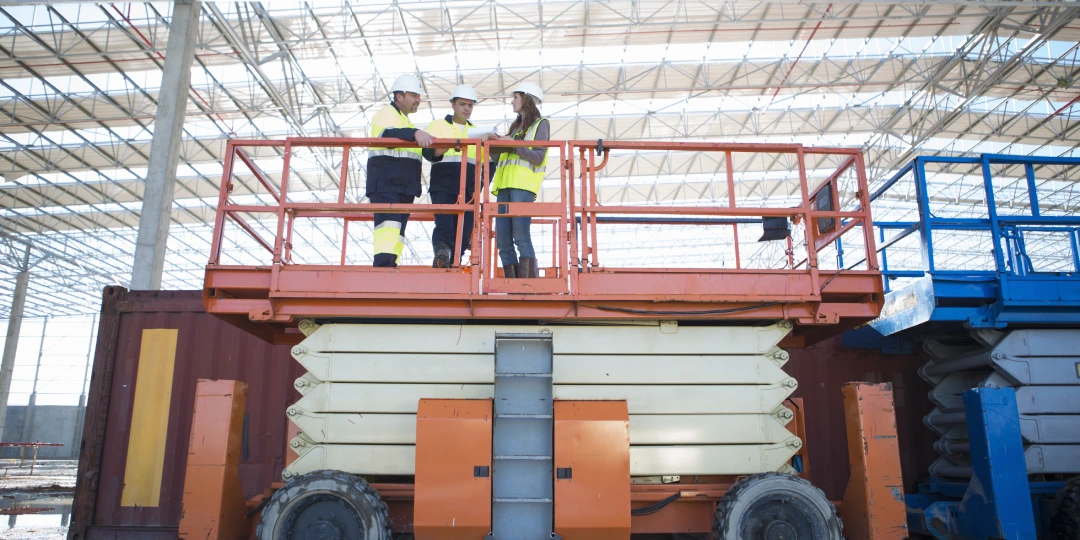
Enhancing Operational Efficiency on Job Sites
Safety and efficiency are not opposing goals—they reinforce one another. A trained lift operator can complete tasks more quickly, more accurately, and with less interruption than someone who’s untrained or unsure. Aerial lift training at Fortier Loss Control is engineered to boost performance while reducing errors. Operators learn to assess site conditions before setup, maneuver equipment with precision, and execute lifts with maximum stability. The result is a smoother workflow and a job site that runs on time, not around emergencies.
Time spent troubleshooting mistakes or redoing improperly completed tasks adds up fast. So does equipment downtime caused by avoidable misuse. With aerial lift training at Fortier Loss Control, operators understand the capabilities and limits of their machines. They know how to adjust to load shifts, maintain three-point contact, and properly stow equipment after use. These seemingly small actions compound to create a job site where projects move forward without constant delays or do-overs.
Fortier’s training also enhances communication across crews. Lift operators who’ve undergone formal instruction are more adept at using hand signals, responding to spotters, and coordinating movements in tight spaces. That reduces the risk of miscommunication—a leading cause of lift-related incidents. It also boosts team trust. When everyone on-site knows the lift operator is certified through aerial lift training at Fortier Loss Control, coordination improves and morale climbs. Simply put, trained operators keep everyone else safer, more productive, and less stressed.
Gaining Competitive Advantage in Nashville’s Labor Market
The demand for skilled, certified labor is surging in Nashville’s expanding construction and facilities sectors. Developers and contractors increasingly look for aerial lift certification as a non-negotiable qualification. Workers who complete aerial lift training at Fortier Loss Control position themselves at the front of the hiring line—not just for general roles, but for specialized, higher-paying positions that require proof of training and documented field competence.
From an employer’s standpoint, hiring certified operators reduces onboarding time and allows teams to mobilize quickly. It signals professionalism and reduces insurance risk. By partnering with Fortier Loss Control, companies can ensure their workforce isn’t just legal, but job-ready from day one. This readiness translates into fewer delays, smoother inspections, and stronger performance metrics—factors that make a difference when bidding on competitive projects in Nashville’s tight construction market.
For individual workers, certification is more than a credential—it’s a career multiplier. Contractors, utilities, and facility management firms are all vying for trained talent who can hit the ground running. With aerial lift training at Fortier Loss Control, jobseekers gain a recognizable and respected certification that sets them apart from uncertified candidates. Whether pursuing new opportunities or aiming for a promotion, this training opens doors to roles with more responsibility, stability, and income potential. In a crowded field, certified professionals don’t blend in—they stand out.
Meeting Employer and Contractor Requirements
Many Nashville-based contractors and project owners require aerial lift certification as a condition for worksite access. This isn’t just about ticking a safety box—it’s about meeting the liability standards set by insurance carriers and internal risk management teams. If your crew lacks certification, you may be disqualified before bidding even starts. Aerial lift training at Fortier Loss Control ensures operators carry the documentation needed to satisfy these prequalification checklists without delay or dispute.
Contract compliance is increasingly strict. General contractors are held accountable not only for their direct employees but also for the safety records of subcontractors and third-party operators. One uncertified worker can jeopardize an entire job site’s compliance status. With aerial lift training at Fortier Loss Control, businesses gain verifiable, up-to-date records that can be submitted with bids or presented during site audits. This administrative clarity creates a seamless onboarding process and reduces the risk of costly hold-ups.
Even in industries where regulation isn’t always front and center—like landscaping, warehousing, or telecommunications—more employers are adopting strict internal safety protocols. They’re not waiting for OSHA to enforce them. That means certification has become a baseline expectation, not a bonus. Aerial lift training at Fortier Loss Control positions workers and companies to meet these expectations proactively, showing clients and partners that safety and professionalism are core values, not afterthoughts.
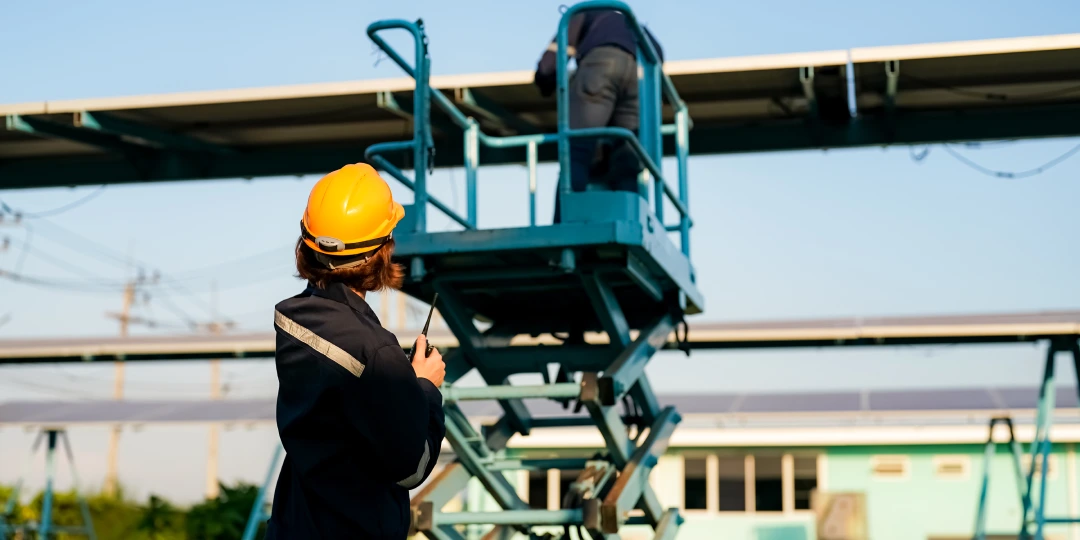
Fortier Loss Control: Nashville’s Trusted Certification Provider
In a crowded training market, reputation matters. Fortier Loss Control has earned its standing as a premier provider of aerial lift training in Nashville by offering thorough, scenario-based instruction rooted in real jobsite experience. Their trainers are not just educators—they’re former safety directors, field supervisors, and equipment specialists who understand the pressures and hazards of modern worksites. This blend of credibility and clarity makes Fortier a go-to resource for companies that can’t afford to take shortcuts with worker safety.
Training at Fortier isn’t built around generic slideshows or cookie-cutter modules. Every session is tailored to the local workforce and the specific lift types most commonly used in Nashville’s industries. Whether you’re operating articulating boom lifts in commercial construction or vertical lifts in indoor facilities maintenance, aerial lift training at Fortier Loss Control speaks directly to your working environment. This customization makes the material stick—and more importantly, it makes it useful on day one.
Fortier’s programs are structured for flexibility and speed. They offer on-site and in-house sessions, making it easy for employers to get their crews certified without disrupting project timelines. Record-keeping is seamless, certifications are portable, and training is conducted to OSHA, ANSI, and Tennessee-specific standards. With Fortier, businesses don’t just meet the minimum—they gain a reliable training partner invested in long-term safety and workforce development.
What to Expect During Aerial Lift Training
Training at Fortier is both practical and immersive. The curriculum starts with classroom-based learning that covers essential topics like fall protection systems, stability and weight limits, and the mechanical design of different lift types. Operators learn not just how to use equipment, but why certain safety procedures matter. This foundation prepares them to think critically and respond appropriately under pressure. Aerial lift training at Fortier Loss Control builds the mindset, not just the muscle memory.
After the theory comes the hands-on application. Trainees are guided through pre-use inspections, operational techniques, emergency response drills, and controlled lift exercises. Instructors assess each operator’s ability to navigate obstacles, identify hazards, and follow manufacturer protocols. Whether working indoors or outdoors, in tight quarters or open zones, participants leave with a strong command of equipment mechanics and safe maneuvering. This phase ensures that aerial lift training at Fortier Loss Control produces operators who can handle real-world variables with confidence.
Finally, certification isn’t handed out automatically—it’s earned. Trainees must pass both a written exam and a practical evaluation to receive credentials. Fortier’s approach reinforces accountability while giving operators a sense of accomplishment. Upon completion, participants receive wallet cards and detailed training documentation employers can file for compliance purposes. With aerial lift training at Fortier Loss Control, both companies and workers walk away with more than a certificate—they gain assurance that the job can be done safely, legally, and efficiently.
Who Needs Certification: Roles and Industries
Aerial lift use isn’t limited to large construction firms. Across Nashville, workers in dozens of roles operate lifts daily—often without realizing the risk they’re assuming. Electricians, HVAC technicians, telecom installers, warehouse personnel, arborists, and even painters rely on vertical access to do their jobs. Without proper training, each of these roles exposes workers and employers to injury and liability. Aerial lift training at Fortier Loss Control gives professionals in every industry the preparation they need to work confidently and safely at height.
For employers, the variety of roles requiring lift access means safety protocols must extend beyond equipment operators. Anyone who works around or with a lift—spotters, supervisors, or maintenance crew—benefits from understanding how these machines work. Aerial lift training at Fortier Loss Control offers customizable sessions that can include entire teams, ensuring jobsite awareness is high across the board. This helps prevent incidents caused not just by the operator, but by those unaware of safe perimeter distances, fall zones, or communication protocols.
The industries most reliant on lift use in Nashville—commercial construction, logistics, utilities, and municipal maintenance—are also some of the most scrutinized. Clients and regulators expect visible, documented safety efforts. Whether you’re a general contractor bidding on a public infrastructure job or a facility manager handling warehouse maintenance, aerial lift training at Fortier Loss Control signals compliance, readiness, and professionalism across every level of your operation.
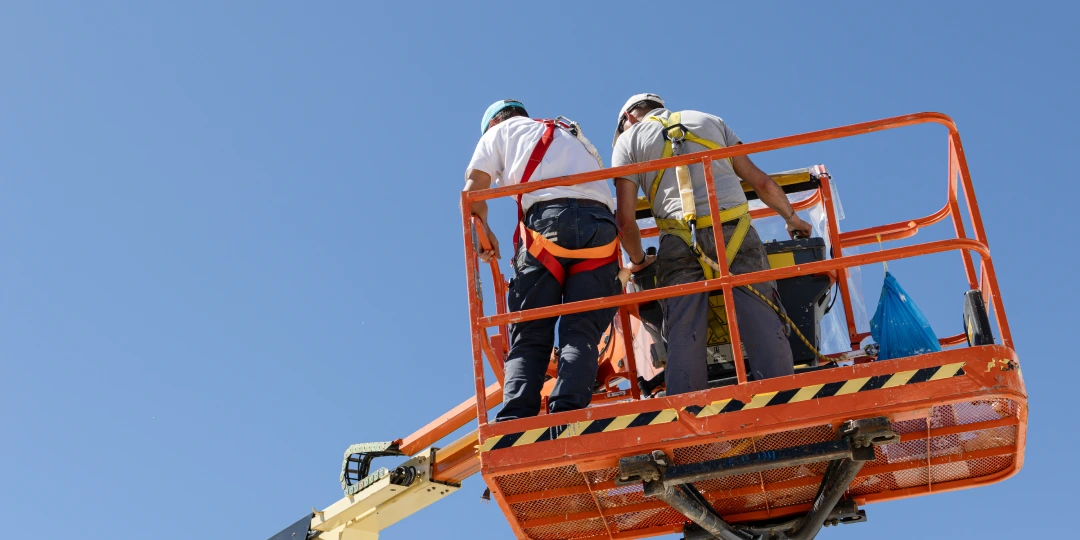
Frequently Asked Questions
1. Who is required to complete aerial lift training in Nashville?
Anyone who operates an aerial lift—such as boom lifts, scissor lifts, or vertical mast lifts—is required by OSHA and Tennessee state regulations to complete formal training. This includes workers in construction, utilities, warehousing, maintenance, and various trades like HVAC, electrical, and signage. Even supervisors or spotters who work closely around lifts benefit from understanding proper safety procedures. Fortier Loss Control’s training meets all applicable regulatory standards and is tailored to Nashville’s workforce needs.
2. How long does aerial lift certification from Fortier Loss Control remain valid?
Certification typically remains valid for three years, in line with OSHA recommendations. However, retraining may be required sooner if an operator is involved in an incident, is observed using equipment unsafely, or if the employer introduces new lift types or working conditions. Fortier Loss Control offers both initial and renewal training options to keep workers up to date and compliant without interrupting workflow.
3. What does Fortier Loss Control’s aerial lift training include?
Fortier’s program combines classroom instruction with hands-on practical training. Topics covered include lift inspection, safe operating procedures, fall protection, emergency response, and hazard identification. After completing both the written exam and skills assessment, participants receive certification cards and documentation for employer records. The training is designed to be job-specific, OSHA-compliant, and directly applicable to real-world site conditions in and around Nashville.

Conclusion: Certification as a Strategic Asset
In Nashville’s high-demand, high-liability labor market, aerial lift certification isn’t optional—it’s essential. The difference between a certified operator and an untrained one can mean the difference between a smooth project and a costly accident. It can influence insurance premiums, contract eligibility, and brand reputation. Aerial lift training at Fortier Loss Control transforms certification from a regulatory hurdle into a competitive edge for both individuals and companies.
Every hour spent training is an investment in safety, efficiency, and trust. Whether you’re managing a fleet of lift operators or preparing for your first day on a job site, Fortier’s program ensures you’re not only compliant, but capable. Their focus on local regulations, job-specific scenarios, and rigorous evaluation makes aerial lift training at Fortier Loss Control one of the most practical and impactful decisions a Nashville employer can make.
Ultimately, this training isn’t just about machines—it’s about people. It’s about giving workers the knowledge to protect themselves and others, the skills to excel at their craft, and the credentials to advance their careers. Certification is a strategic asset, and Fortier Loss Control is the partner trusted to deliver it with the clarity, quality, and consistency Nashville’s workforce demands.


